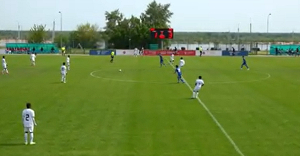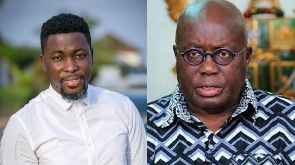- Home - News
- TWI News | TV
- Polls
- Year In Review
- News Archive
- Crime & Punishment
- Politics
- Regional
- Editorial
- Health
- Ghanaians Abroad
- Tabloid
- Africa
- Religion
- Election 2020
- Coronavirus
- News Videos | TV
- Photo Archives
- News Headlines
- Press Release
General News of Saturday, 1 April 2006
Source: GNA
Workshop on Conflict Resolution ends at Dodowa
Dodowa, April 01, GNA - A three-day workshop on Conflict Resolution organised for Members of Faith Communities and the Media ended at Dodowa in the Dangme West District of the Greater Accra Region at the weekend with a call on journalists to be more circumspect in their reportage to prevent escalation of conflicts.
Mr Edwin P.D. Barnes, Chief Director of the Ministry of the Interior, told the 16 participants that the media had been identified as one of the major sources of conflicts due to the manner they sometimes reported on issues.
He alluded to the conflict in Rwanda where the ethnic conflict that killed nearly 800,000 people of the minority Tutsi and majority Hutu moderates had been fuelled by media reportage.
"I am therefore appealing to the press to be a little more careful in their reportage. I know they want to sell their newspapers but they need to exercise great caution in the manner they report, particularly on sensitive issues.
"This is because people who die from conflicts cannot be brought back to life. This is our nation and we need your support," he stated. Mr Barnes explained the rationale behind the workshop, saying the Ministry had come to the realisation that it was spending so much money on conflict resolution rather than prevention, hence the decision to build a Peace Architecture to develop a team of persons with the requisite training and skills who could come in quickly to stem conflicts before they erupt or escalate. The basic philosophy of the Ministry, he said, was to train a trainer of trainers who could in turn train Peace Promotion Officers in the regions to nose around and bring together all the factions in a conflict for a possible solution before they degenerate into war or civil strife.
Mr Barnes said the Ministry had also come to the realisation that if it did not work to promote peace, something could happen one day, citing Rwanda, Liberia, Sierra Leone and Cote d'Ivoire as cases in point.
"We want to see you as Trainers of Trainers; the Ministry would give you every support to help develop this Architecture of Peace in Ghana. I believe that if we can put these measures in place, we can stem conflicts," he said.
Mr Barnes said the Ministry would establish district and regional peace councils and that it was the intention to use the participants as resource persons who could use their skills to promote peace in all parts of the country.
"We need you to get to the roots of these conflicts which could go as far back as even 20 years or more to be able to resolve them." The Chief Director said though Ghana seemed to be enjoying some relative peace, he wondered whether this was a true or seeming peace, and called for the support of all to help prevent rather than resolve conflicts in the country.
The Ministry of the Interior, in collaboration with the United Nations Development Programme (UNDP), has established a Peace-Building Support Unit to help facilitate the development of a mechanism for cooperation among all relevant stakeholders in Peace-Building. The Unit aims at the harmonisation of peace-building activities in Ghana and the development of a conflict prevention framework to monitor; report and offer indigenous perspectives, understanding and solutions to conflicts in Ghana.
Since 2005, the Ministry and the UNDP have developed the Architecture for Peace to train Peace Promotion Officers for each of the 10 regions to assist Regional Coordinating Councils and Regional Security Councils to defuse tensions in the regions. It was in the light of these objectives that the Ministry organised last week's Workshop on Conflict Resolution for representatives of the Faith Communities and the Media.
The participants were drawn from the Peace Support Unit of the Ministry of the Interior, Ghana Journalists Association, Catholic Secretariat, Office of the National Chief Imam, Ahmadiyya Mission, and the Office of Justice and Peace.
The other participants came from the Peace and Governance Advisor of the UNDP, Centre for Peace Initiatives, and the Muslim Council of Ghana.
Earlier at the opening ceremony, Mr Ozonnia Ojielo, Advisor on Peace and Governance at the Office of the Resident Coordinator of UNDP, said when the state apparatus allowed some people to get away with wrong doing, then there was a contest of wills by the people and this could lead to conflict.
Therefore, he called on the faith community leaders not to limit themselves to only spiritual things but also promote efforts towards the nation's development.
Mrs Jacqueline Owusu-Biney, a facilitator, identified disparity in the distribution of resources, negative values and belief systems, people's psychological and communication needs as some of the causes of conflicts.
Mr Abdulai Bawumia, Coordinator, who deputised for the Chief Director, expressed the hope that the workshop would sharpen the fundamental peace-building skills of the participants to help build consensus for national development.
Topics treated at the workshop included "Causes and Nature of Conflicts", "Negotiation", "Communication", and "Mediation".










